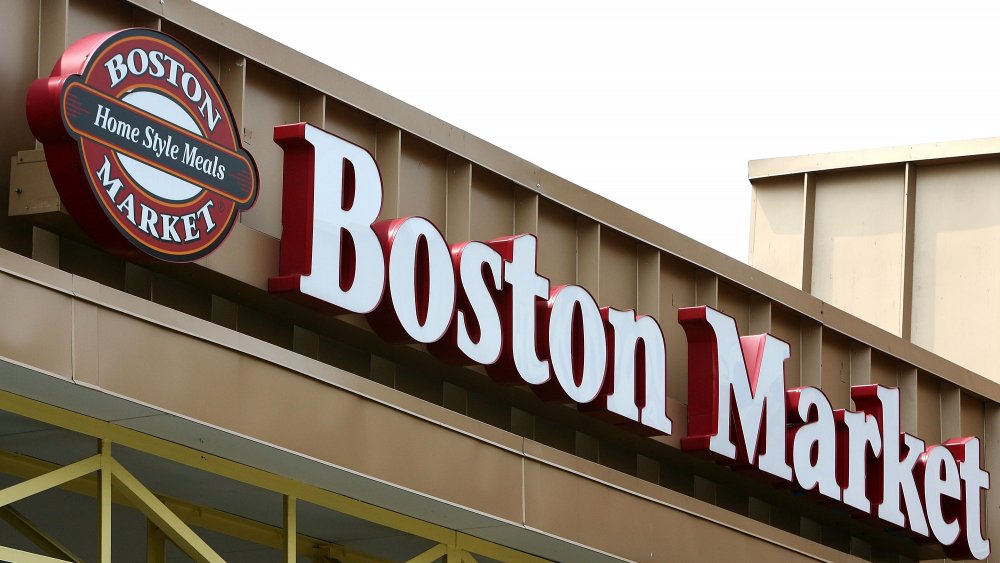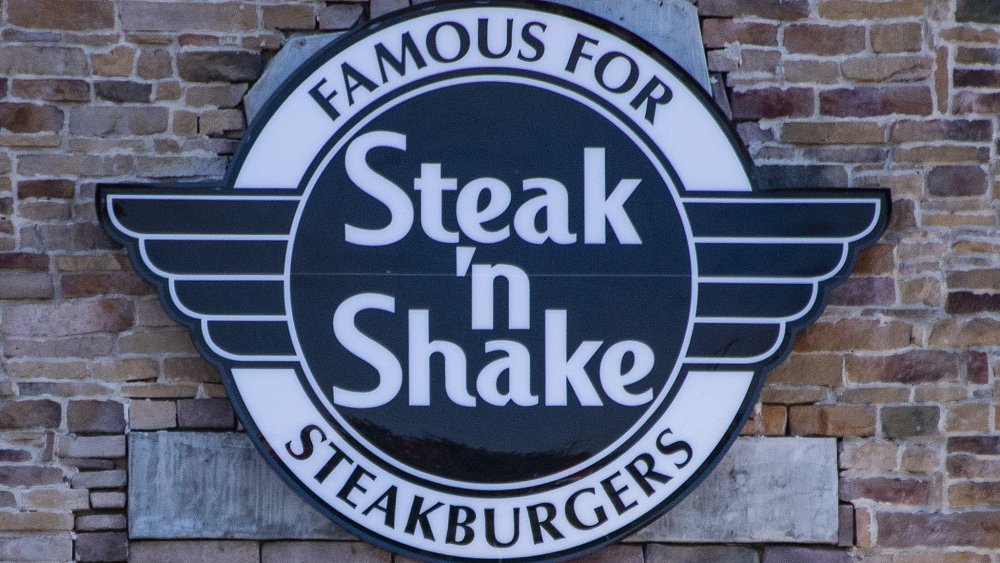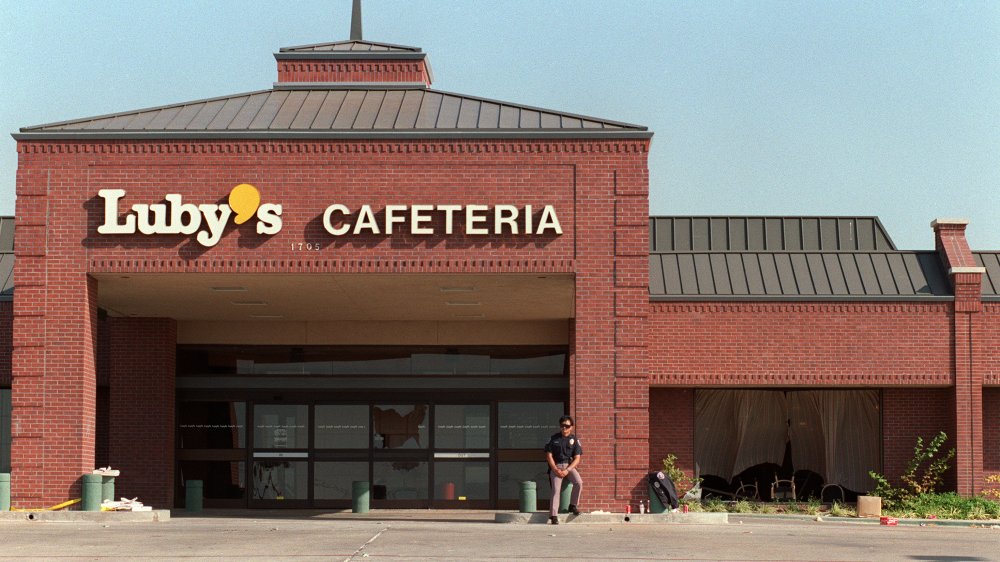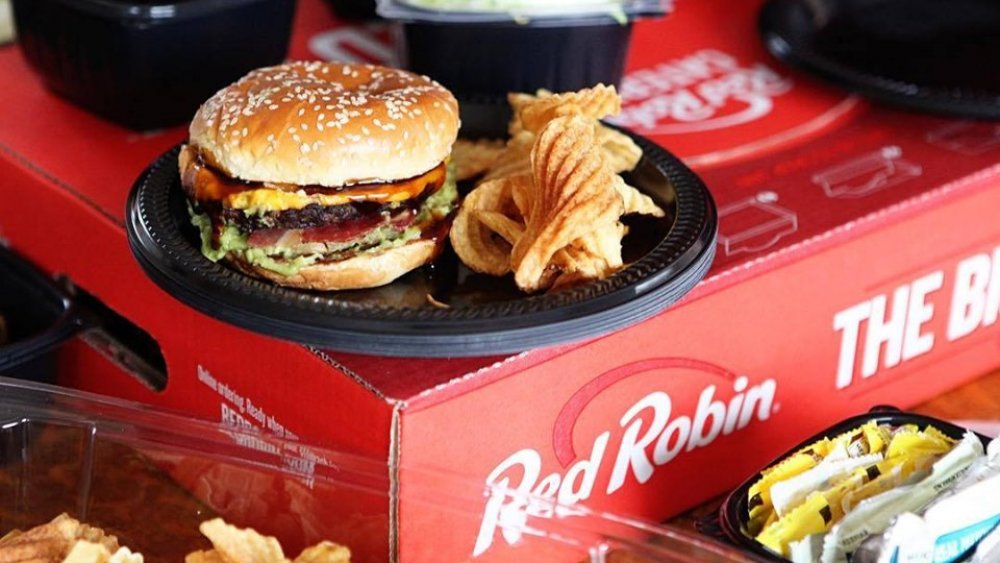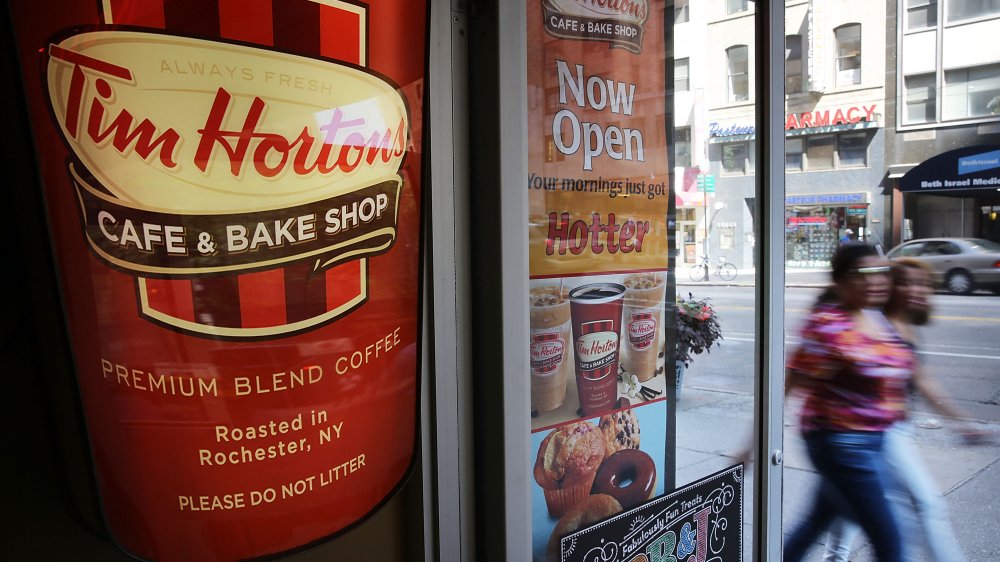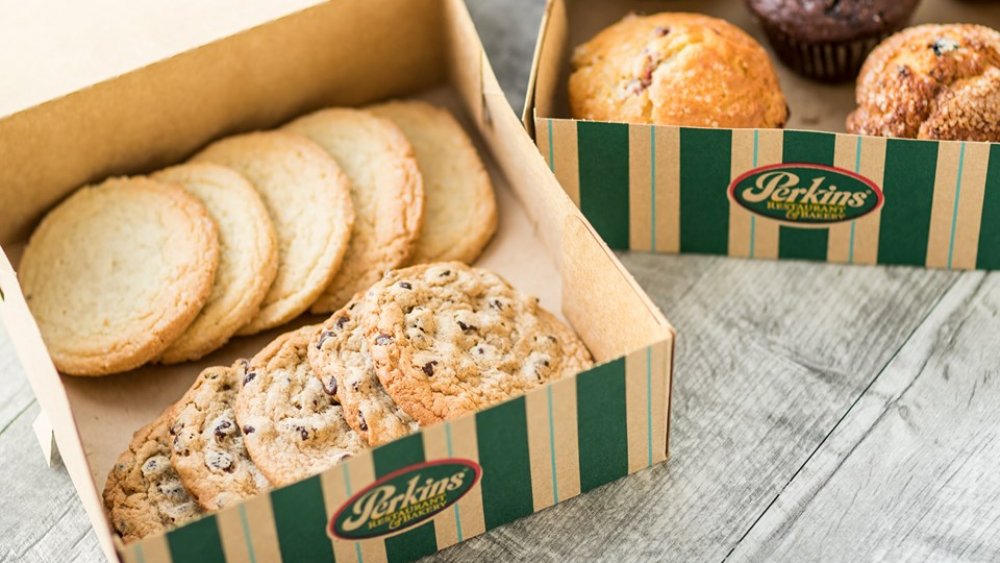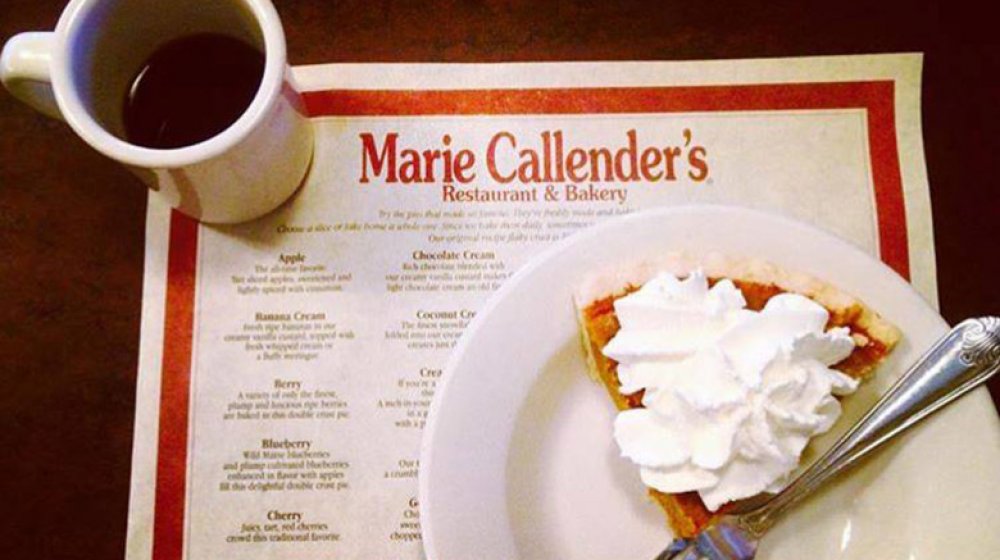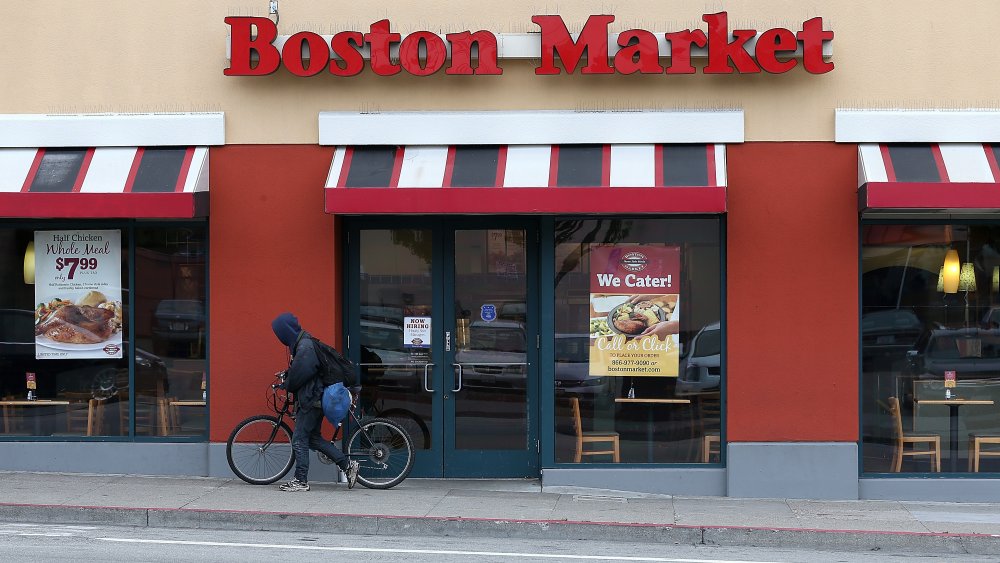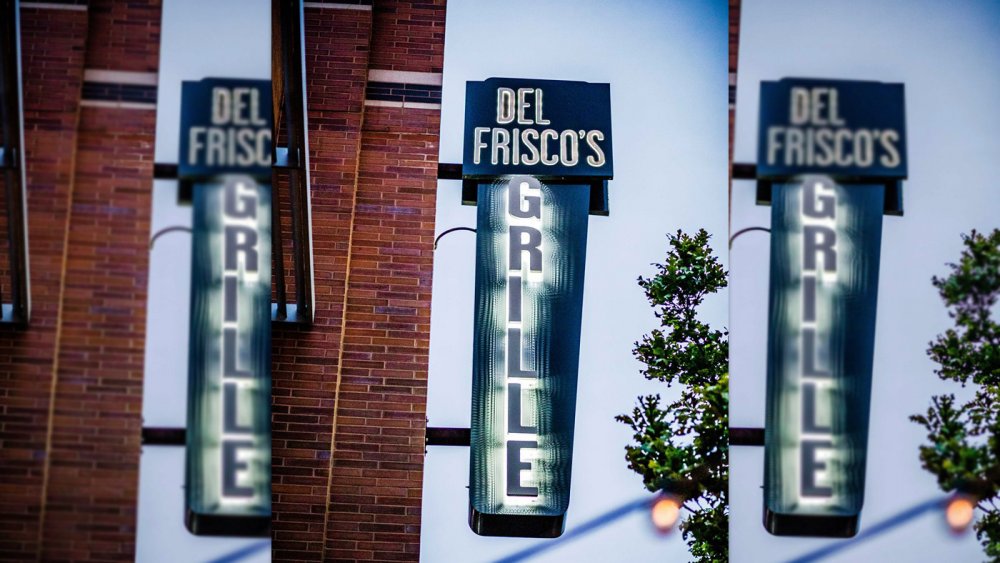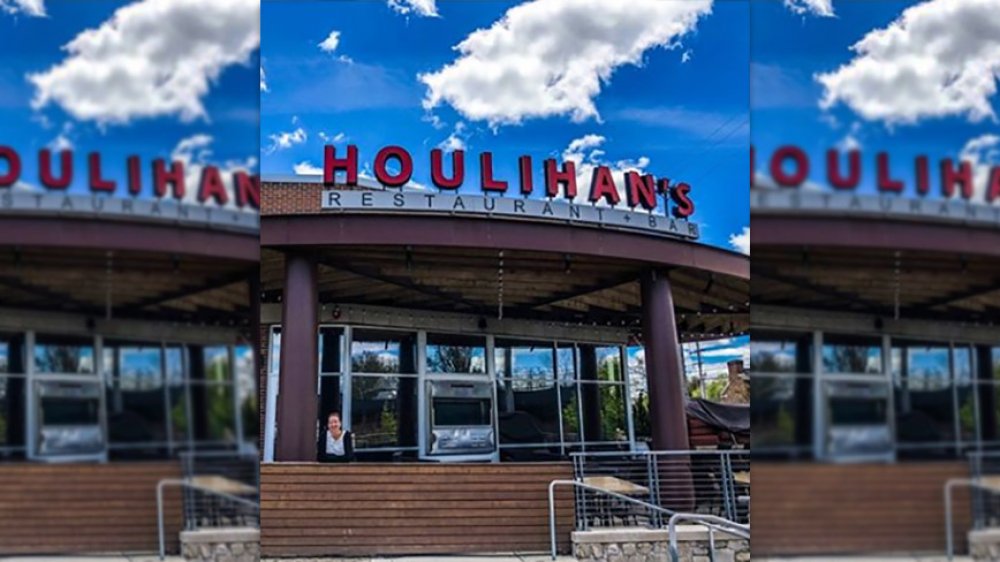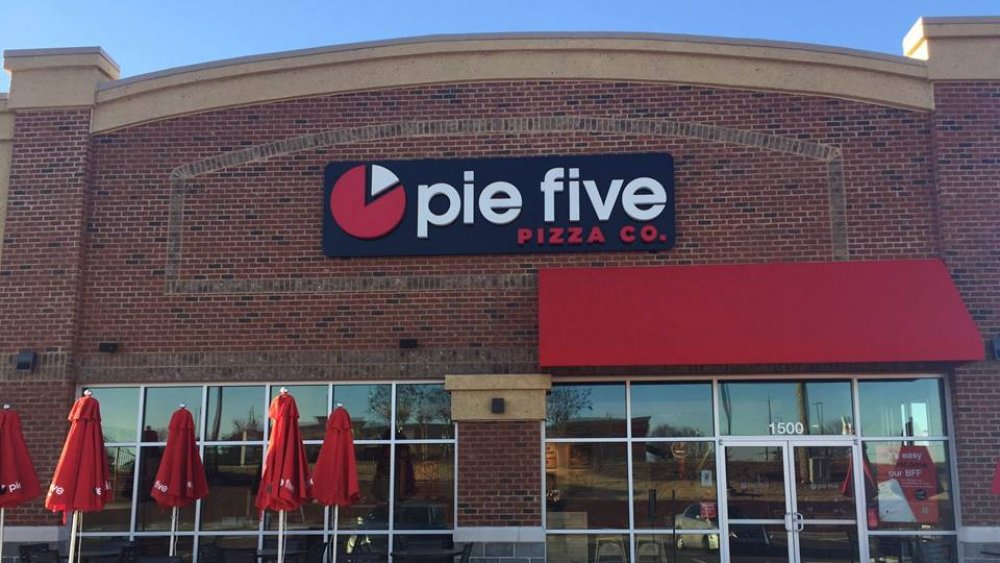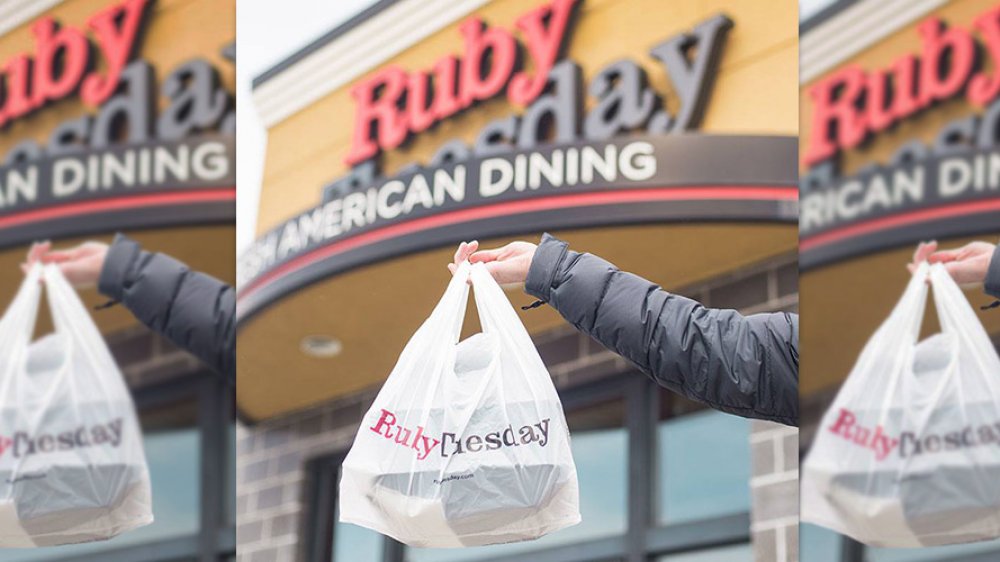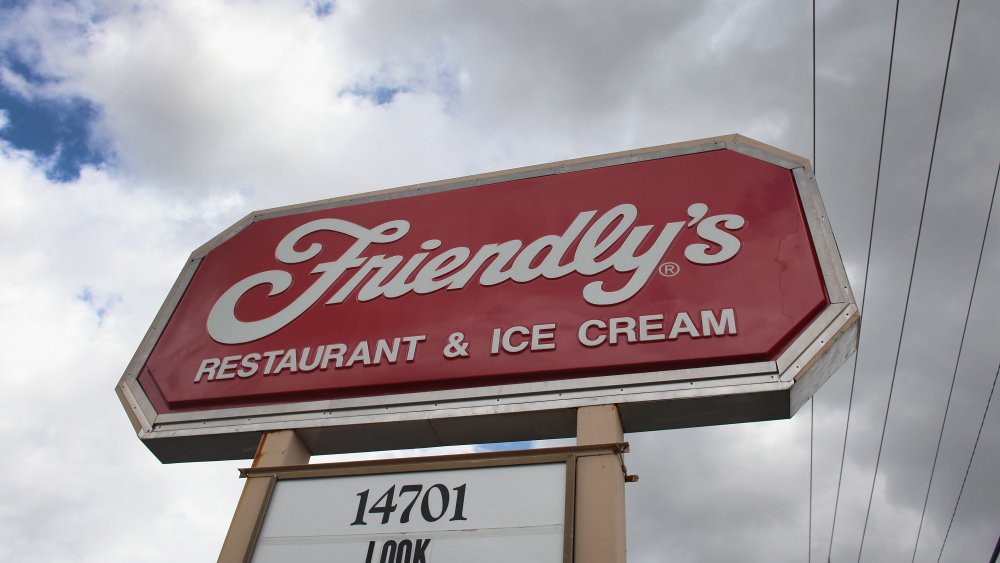Restaurant Chains That Might Be Closing In 2020
The restaurant business can be pretty cutthroat, and just because a chain might have national name recognition and millions to throw at an advertising budget, that doesn't necessarily mean they'll win out over the little guy.
While chains like Mod Pizza and Five Guys saw their chain empires flourish in 2019, other chain restaurants haven't been so lucky. For every Shake Shack out there, there's a Friendly's or Red Robin trying to keep the lights on. Many of the chain restaurants on this list started out the decade in a good position, with high dine-in traffic and healthy sales. A lot has happened over the last 10 years though, and dining trends have shifted dramatically. While some restaurants have adapted, many have not — and are in jeopardy of going under.
We can't say for sure that these restaurants will be gone for good in 2020 — many of them are adapting their menus and business models in hopes of staying afloat. That said, enjoy these chains while you can.
2020 isn't looking good for Steak 'n Shake
There's really no way to spin the closure of 100 restaurants as a good thing. Even if it is supposedly "temporary" and a company has high hopes that they'll eventually reopen and be better than before. By September of 2019, Steak 'n Shake had closed over 106 of its restaurants and lost a staggering $861,000 in the year's third financial quarter (via QSR Magazine).
The beloved diner known for their shakes and steakburgers has cut a quarter of their company-owned restaurants this year and the only upside is that they've lost less money in 2019 than they lost in 2018. But still, they're bleeding cash. The chain, which has been around since the Depression-era, seems to only be adding to its same-store sales decline with November 2019 making the 12th straight period of floundering sales (via Indiana Business Journal).
Steak 'n Shake tried to right the wayward ship in 2018 when they launched a plan to move all of the company-owned restaurants over to the franchise model, but the initiative barely got off the ground. Only four of the 100-plus "temporarily closed" restaurants have so far reopened under franchise partnerships.
Maybe your local Steak 'n Shake will reopen in 2020, but then again, maybe not. And if you happen to have one close by that's still open, order that Frisco Melt while you still can.
Luby's might not like what 2020 has in store
In a day and age when delivery apps and fast-casual seem to be the dominating trends in the food industry, cafeterias are quickly going the way of the video store. Chain cafeterias like Luby's are becoming a forgotten relic of the past, and the Texas-based cafeteria has fallen on hard times lately.
Luby's has been a Texas institution for over 65 years, but has recently seen sales decline and its restaurants close. In July, the brand — which also owns struggling chains Fuddrucker's and Cheeseburger in Paradise — closed several restaurants to try and pay off debt (via The Houston Chronicle).
As for that debt, the company is in the hole to the tune of $35.9 million. That's an awfully big debt for a cafeteria tray to carry and declining sales don't help. "We are not pleased with our shareholder value, same-store sales, guest traffic results, or corporate overhead," CEO Chris Pappas said in November 2019.
Restaurant Business reported that in September of 2019, the company began exploring what they called "strategic alternatives." As for what that strategy entails, it likely means trying to sell the brand. This could mean an overhaul of existing Luby's, or the closure of even more locations.
Red Robin might not win in 2020
In 2017, Food Business News declared a "burger boom," with growing chains like Cook Out and Habit Burger on the rise. A "burger boom" should be great for an established gourmet burger chain like Red Robin, right?
Well, that sadly has not been the case and Red Robin is struggling to stay afloat. Sales had been slipping at Red Robin for some time and in early 2018, the chain said they would be cutting overhead costs by getting rid of busboys. "It was just atrocious," John Gordon, an analyst at Pacific Management Consulting Group, told Nation's Restaurant News. "We knew that was going to screw up the customer flow and throughput. And, sure enough, it did."
By June of 2019, Red Robin's stock had dropped by $24 a share of what it was trading at in January of 2018. By November, the chain had a net loss of $1.8 million, despite an uptick in same-store sales at certain locations. Traffic was down at restaurants, but the average customer's check was up (via Restaurant Business).
That might have been a small win, but it wasn't enough for Red Robin not to suspend its refranchising program — they say they're saving that for when the numbers look better. The company did bring on a new CEO, but Red Robin is still a long way from flying high.
2020 is starting rough for Tim Hortons
Before we offend any Canucks, let's be clear, we're talking about Tim Hortons' United States efforts. The chain is doing well in Canada with Restaurant Business reporting that 80 percent of Canadians visit a store at least once a month.
Things at Tim Hortons in the lower 48, though, aren't even close to being that busy — despite nearly half the U.S. locations being a stone's throw from Canada. Many Tim Hortons stores around the United States are seeing declining sales and closing up shop. Numerous factors ranging from too much coffee competition, to regionalization and franchisee problems, have all been labeled as areas of blame.
As of November 2019, Tim Hortons can be found in 12 U.S. states, but they seem to be closing locations faster than they open them. Half of the Minnesota stores closed in the spring, followed by closings in Michigan and Ohio.
Tim Hortons has plans to expand to Europe, Mexico, and Asia, but its future success in the United States remains murky at best. "Anywhere where Starbucks and or Dunkin hasn't completely taken over, I think might actually be a better fit for them," research analyst Miranda Lambert told CNBC.
Okaaay, so that pretty much cancels out the entire United States for Tim Hortons.
Perkins is looking at a troubling 2020
As of November 2019, there are over 300 Perkins restaurants scattered throughout the United States. While it's unlikely that every location will be boarded up by the end of 2020, the restaurants have seen better days.
Perkins is in financial trouble and in August of 2019, Perkins & Marie Callender's Inc, filed for bankruptcy protection. Part of this also resulted in the closing of 10 underperforming Perkins restaurants, and business isn't on the upswing (via Nation's Restaurant News). Just a month later, the restaurant group split after 13 years of partnership, and now Perkins is part of the Waffle House knockoff — Huddle House (via Restaurant Business).
The brand has blamed dwindling guest traffic, minimum wage hikes, and the labor market for its struggling restaurants. Those struggles, though, have been going on for years.
While filing for bankruptcy protection, closing multiple restaurants, and ending a once successful business relationship isn't typically a vote of confidence for a restaurant, it may not be all gloom for Perkins. Huddle House is actually reporting pretty strong business, so maybe some of that energy can be transferred over to Perkins.
2020 isn't shaping up well for Marie Callender's
It would be nice if we could tell you that Marie Callender's was in a better than — or at least equally as bad as — Perkin's, but that's not how it shakes out. They're unfortunately even worse off.
There are only 28 Marie Callender's restaurants still operating, and there were nearly double that number in 2017 (via Restaurant Business). It doesn't take a mathematician to recognize that a decline in locations of 50 percent spells bad news for a brand. The brand lost 19 locations in August 2019, although a Salt Lake City location did later reopen.
While Marie Callender's has been around since the 1940s, it was the noticeably weaker link in the partnership with Perkins. Whereas Perkins was sold to Huddle House for $51.5 million, Marie Callender's fetched a far lower price, and was sold for just $1.75 million. It also wasn't picked up by another brand, but simply bought by a new company called simply Marie Callender's Inc. The brand is also having a hard time competing with similar chains such as the Black Bear Diner.
Long story short, if you have a Marie Callender's in your town, enjoy it while you can.
Boston Market might be cooked in 2020
Rotisserie chicken restaurants just don't seem to be spreading like wildfire these days. Despite the fast-casual chicken chain offering up slow-roasted chicken that's free of antibiotics, Boston Market is struggling to stay afloat and numerous stores have found themselves on the chopping block.
In July of 2019, the company announced that 45 or — 10 percent of its stores — would be closing for good ( via Nation's Restaurant News). CEO Frances Allen said the closures were necessary in order for the company to have a shot at surviving in the long-term. "Part of that effort involves continuously analyzing our geographic footprint and real estate portfolio to assess the ongoing viability of locations."
If this were simply a one-time slide for the chain, perhaps they wouldn't be on this list, but that's hardly the case. Sales weren't just down in 2019, but 2018 as well, and Boston Market's financial troubles go back 20 years. Before being bought and later sold by McDonald's, Boston Market filed for bankruptcy in 1998 (via International Business Times).
The company is hoping that a new loyalty program, menu additions, and revised branding strategy to accompany mobile ordering will help turn things around. Only time will tell if this bird is cooked for good.
Del Frisco's Grille is starting 2020 with a struggle
Sometimes a company bites off more than it can chew and it ends up choking itself with a bunch of angry investors who can only stand by and watch with frustration. That seems to be the case with Del Frisco's Grille, a popular steakhouse with numerous awards and locations in major metropolitan areas.
Before we jump into Del Frisco's troubles, let's jump back to 2016 — the company had no serious debt and was profitable. A pricey $325 million restaurant group purchase in 2018, however, put a serious strain on Del Frisco, and it wouldn't be long before restaurants started closing (via Restaurant Business).
By June 2019, the Del Frisco's Restaurant Group would be sold to a private-equity firm for a staggering $650 million. That's a lot of money, but it doesn't necessarily mean your local Del Frisco's Grille will stay in business. That private-equity firm flipped Del Frisco's Grille over to Landry's restaurant group and underperforming restaurants in Washington, D.C., Maryland, and Massachusetts were closed in the process.
Perhaps Del Frisco's Grille will weather all the trading and come out stronger than before — assuming it can reverse its declining sales before it's too late.
Houlihan's might not see the end of 2020
Landry's, the company that now holds the future of Del Frisco's Grille in its hands, could also be in charge of whether or not higher-end casual-dining chain Houlihan's has a future. In November, it made a $40 million offer to buy the struggling chain.
According to Restaurant Dive, Houlihan's has been saddled with $47 million in debt from a December 2015 loan and the loan is due to be paid by 2020. Perhaps that wouldn't be such a problem, but the restaurant hasn't made any payments on it since December 2018 and it's seen a sales decline and closure of multiple units since then. Uh oh.
Some of those closures had been in business for decades. The Lansing Mall location in Michigan saw its Houlihan's shutter its doors after almost 40 years of serving the community (via WILX News).
Like a lot of chain restaurants, Houlihan's has struggled to find a way to keep profits up amid the growing takeout trend. Restaurant Business reported that in 2013, Houlihan's had 81 locations. Hard times, though, have resulted in that number shrinking to just 55 restaurants.
2020 will be an uphill climb for Pie Five
According to Small Business Trends, pizzerias are one of the most profitable restaurant formats today. That's sadly not how the story appears to be unfolding for pizza chain Pie Five.
Whereas some of the other restaurant chains on our list have been around for over half a century, Pie Five isn't even technically old enough to get a driver's license. The company has only been in existence since 2011, and yet it may not last very long into the next decade.
The Dallas-based chain has shrunk 40 percent and gone from around 100 stores two years ago, to just 58 stores as of December 2019 (via Restaurant Business). Sales at the pizzeria have also continued to slip sales quarter after sales quarter.
In September 2019, Pie Five's parent company, Rave Restaurant Group, brought in former Noodles & Company executive — another struggling chain — Scott Black to help the pizza business create a "guest experience that capitalizes on the customization." The company also landed new CEO Brandon Solano in October, who believes the restaurant's trouble was that nobody knew what it was about. "Consumers don't know what Pie Five stands for," he explained.
Solano and a research firm are apparently doing "deep consumer work" to figure out how to close their customer gap. Perhaps they could start by adding "Pizza" into the name somewhere. Just a thought.
Ruby Tuesday will probably see its numbers fall in 2020
Can you hear Mick Jagger singing "Goodbye Ruby Tuesday" in the background? Because considering the American chain's history of troubles it should be coming in loud and clear. Between August 2017 and January 2018, Ruby Tuesday closed over 100 of its locations because of slowing dine-in traffic (via CNBC).
It would be nice if that purge was the end of it and the bar and grill was once again the bustling hot spot of suburbia. Nope. More closures followed throughout 2019 and it's down to 460 units now. That's quite a big drop from the 950 restaurants it had a decade ago.
It's not that Ruby Tuesday hasn't tried to buck the casual-dining chain decline either. They've brought in numerous CEOs to try and turn things around, as well as revamped their menu more than a few times. So far, nothing has been a standout solution.
While it's probably not likely that those 460 Ruby Tuesday locations will all bite the dust in 2020, it's highly likely that the chain won't end the year with more locations than it started with.
2020 doesn't look very bright for Friendly's
In September 2019, Maryland's newspaper, the Carroll County Times lamented the closure of its Ruby Tuesday and mentioned another recent chain restaurant in the area that had gone under — Friendly's.
Friendly's went through some rough times in 2019, and 2020 isn't necessarily looking all that brighter. In April, the chain closed 23 of its restaurants in the Northeast. The company blamed the closures on slow sales, and said that people were opting for healthier options over ice cream sundaes.
Whether or not healthy eating is truly to blame, the chain has struggled to boost its sales in recent years. Things only worsened for Friendly's when the maker of its ice cream, Dean Foods, declared bankruptcy in November (via MassLive).
While Friendly's restaurants are owned by a separate company, and the brand said it doesn't expect the bankruptcy to "have any impact on the operations of Friendly's restaurants" things with the brand still aren't too sweet.
November and December 2019 saw more Friendly's restaurants close in Massachusetts and New York due to "shifting consumer demographics" due to "shifting consumer demographics" according to a company spokesperson. That's company spokesperson talk for "people just aren't eating here."
With a 25 percent decline in its restaurants in the last two years, 2020 will be an uphill climb for this American diner and ice cream parlor.
